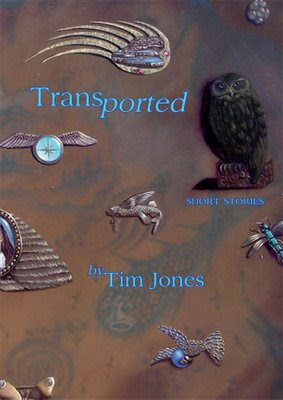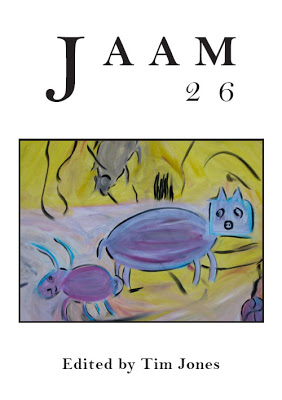Well it’s sugar for sugar and it’s salt for salt
If you go down in the flood it’s going to be your own fault (Bob Dylan)
As a writer, I spend quite a lot of time flooding things. In my poem First Light, I flooded a fair chunk of the Manawatu. (I read this poem in Palmerston North, and it didn’t prompt undue alarm.) Several stories in my recent collection Transported feature the rising, or risen, sea:
I cut the engine in the shadow of the motorway pillars and let the dinghy drift in to the Wadestown shore. The quiet of late afternoon was broken only by the squawking of parakeets. After locking the boat away in the old garage I now used as a boatshed, I stood for a moment to soak in the view. The setting sun was winking off the windows of drowned office blocks. To the left lay Miramar Island, and beyond it the open sea. (The Wadestown Shore)
He started to walk towards the headland at the northern end of the beach, wondering whether the stream was still there. It was, but it now flowed out through a stop-bank that protected the fields behind. Someone – maybe the farming family that used to live here – had put a lot of work into that bank, but it had not been maintained lately, and the cracks were beginning to show. Soon the abandoned fields would become swamp and then lagoon. Mangroves would grow here for a while, until the sea rose too high even for them. (Going Under)
I think there are several reasons why flooding features so prominently in my work. One is that I spent a lot of time on or near the water as a child. My family emigrated to New Zealand when I was two, and later on, my dad got a job as a fisheries inspector. While he chased after paua poachers and the like, I would dam streams on the beach, a vocation commemorated in this little prose poem:
Bluecliffs Beach
The boy plays in the sand. His father, the inspector, has been gone for two hours, checking paua, checking crayfish, checking for bad men sifting the tide.
The boy is damming streams. They flow down from the blue cliffs, over the road, and into Te WaeWae Bay. Except for one: the stream the boy has dammed. The water pools, goes wide, searches for a way. The boy is ready. He has driftwood, he has sand. One day he will be the greatest hydro engineer the world has ever seen. The Waiau, the mighty Clutha: none will flow free of his reach for long.
His dad returns. No bad men today. They drink coffee from a thermos, taking turns with the single cup, then walk back to the van. The boy looks back. The wind, the sun, the tide, the stream, the sand.
(from Southern Ocean Review 43)
Next, there’s my interest in climate change. Writing creatively about climate change in general isn’t easy – something I’ll talk about more in the second part of this post, when I’ve figured out why! – but the rising sea can be powerful in a story, both as an actor in itself and because it stands in so well for fate. “No fate but what we make,” says the Terminator franchise, but the sea is ever-present, inescapable. It’s coming for you.
The third reason is, again, personal. In 1989, I nearly drowned when swept off my feet at Smaills Beach, near Dunedin. I was saved by good fortune and the swift action of friends, to whom I am very grateful. That near-drowning has turned up several times in my work, most recently in “Going Under” in Transported. So, if you’d prefer to avoid the trouble and inconvenience of such an experience, this is what it felt like to a thinly-disguised me.
From “Going Under”
Martin lay on the beach for a while, talking with his new flatmate Chris. But the sea looked inviting, and he dragged himself out of the sandhills and down to the water’s edge. He dipped his toe in, and decided the water was getting warmer by the year. Of course, seasonal fluctuations were always — Stop thinking, Martin, he told himself, and get in there! He advanced to calf-deep, to thigh- and hip-deep (postponing the inevitable shock when the water first touched his balls); he savoured the ebb and surge of the streaming water.
When the troughs of the swells were reaching his chest and the crests were lifting the hair from his neck as he turned to let them pass, he decided that he’d come far enough, and started back. Turning, he was caught off-balance by an incoming wave approaching the beach on an angle, warped by the longshore current. It washed him off the sandy hummock on which he had been standing and deposited him on the floor of a pit almost a metre deeper. The water climbed above his shoulders and his head. Only his frantically waving arm broke the surface.
He had a couple of minutes to live. He leapt upwards; his head breached the surface, and he took a mouthful of foam and air. No-one was nearby. He yelled, but the water swallowed his cry and surged into his lungs. Another jump, a half-breath, then a wave broke over his head and he was submerged again. A third jump; this time, he barely broke the surface before falling back.
Martin was well under this time, and his legs were tiring. He tried to make the air in his lungs last and even had time to look about him. Despite his panic, he noticed the colour of the light – Steinlager green – and the hummocks on the sea floor. I’m going to die here, he thought. Water and bubbles flashed before his eyes. He could feel himself fading. Well, one last jump for old times’ sake …
The current was an impartial thing. It had prowled that shore for ages, carving out headlands at the northern end of each beach, working with the waves to scour the bottom. It had swept him out of his depth, and with his life some thirty seconds from its end, as he tried one last jump for air, it swept him out of the pit and back onto higher ground. His head rose above water; he breathed raggedly, coughed up a specimen of the brine that had nearly claimed him, and staggered towards the shore.
Stories excerpted in this post are from Transported: Short Stories (Vintage, 2008). You can buy Transported online from New Zealand Books Abroad or Fishpond.



